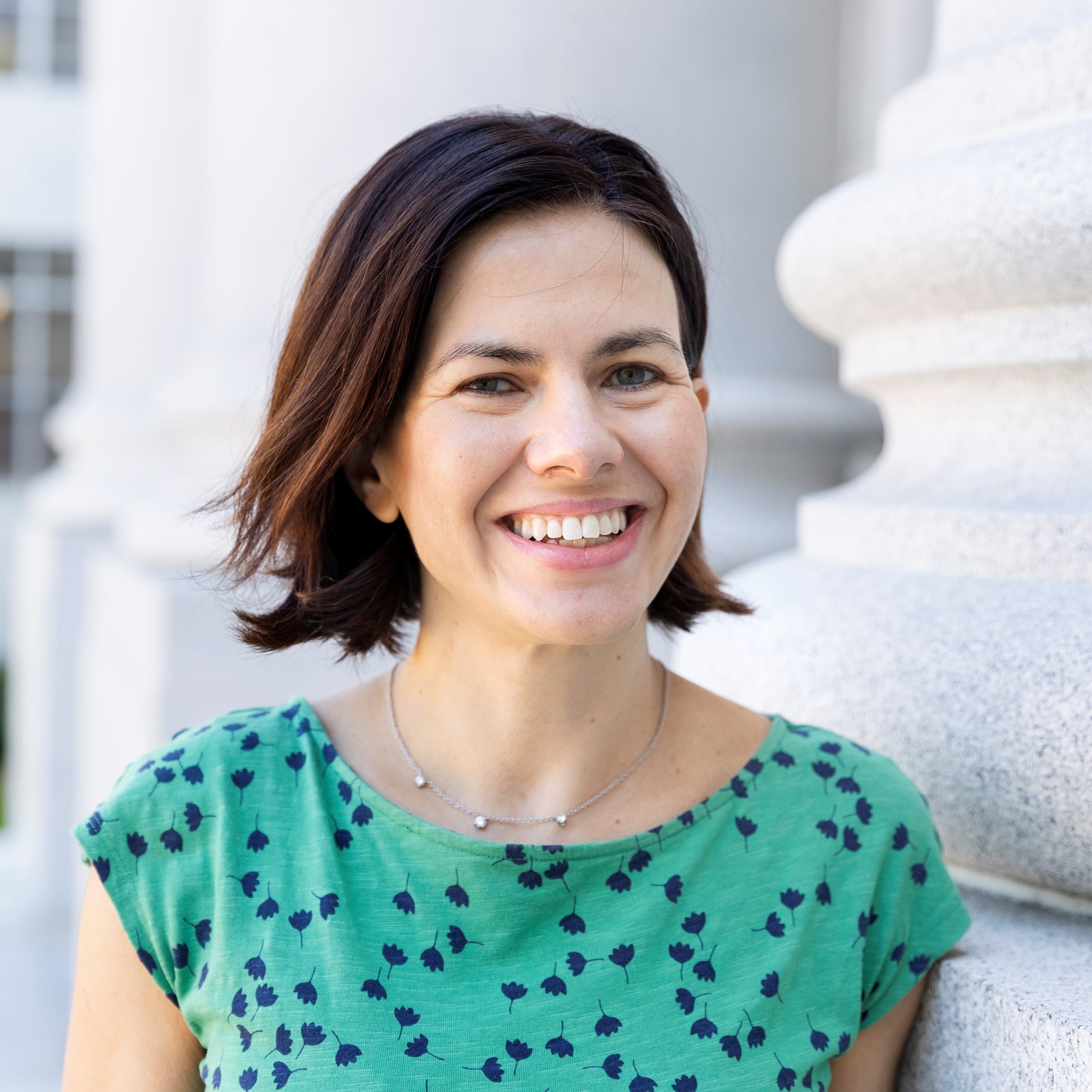Katerina Linos teaches international business transactions, international law, European Union law, and international organizations.
She is best known for her research on the diffusion of ideas around the world. Her book “The Democratic Foundations of Policy Diffusion: How Health, Family and Employment Laws Spread Across Countries” won three national awards. She documents that laws don’t spread only through expert networks, but also through popular movements. Politicians can win elections by advocating for tried-and-true, mainstream models. Therefore, the same law is often adopted around the world, even in countries for which it is a poor fit.
Linos also studies how information and misinformation shape refugee and migration law. Through a Carnegie fellowship, she studied how government and international organization reticence allows for misinformation to spread among migrants, opening up space for rights violations and smuggling. In Digital Refuge, Linos presents the European refugee crisis from the perspective of migrants, drawing on thousands of interviews and Facebook posts. In Responsibility Sharing or Responsibility Dumping? she evaluates both progressive and conservative innovations in refugee law.
Linos has researched how the media translate US Supreme Court opinions; how public opinion cleavages form around the world; how the European Union influences legislation not only through compliance mechanisms, but also through diffusion processes; and how UN General Assembly templates shape the design of institutions around the world.
Linos’ research is empirical and focused on developing and applying new qualitative and quantitative methods. Her work appears in leading law reviews and peer-reviewed journals, including the American Journal of International Law, the American Journal of Political Science, the American Political Science Review, the California Law Review, the Chicago Law Review, Comparative Political Studies, the European Sociological Review, and International Organization. Linos is the host of the international law podcast Borderlines.
Education
B.A., Harvard College (2000)
Diploma, European University Institute (2002)
J.D., Harvard Law School (2006)
Ph.D., Harvard University (2007)
Katerina Linos is teaching the following courses in Spring 2024:
• 261 sec. 001 - International Law
• 261.1 sec. 001 - International Business Transactions
• 261.15 sec. 001 - Colloquium on Law and Geopolitics I
• 261.16 sec. 001 - Colloquium on Law and Geopolitics II
Courses During Other Semesters
| Semester | Course Num | Course Title |  Teaching Evaluations Teaching Evaluations | Summer 2024 | 261.1S sec. 001 | International Business Transactions | Summer 2023 | 261.1S sec. 001 | International Business Transactions | View Teaching Evaluation | Spring 2023 | 206C sec. 001 | Note Publishing Workshop | View Teaching Evaluation | 261 sec. 001 | International Law | View Teaching Evaluation | 261.17 sec. 001 | International Organizations | View Teaching Evaluation |
|---|
From Crypto to the Meaning of Truth, New Courses Build Knowledge Across a Broad Spectrum
More than 20 new classes are just part of a record number of courses offered this spring, giving students a rich range of choices.
EU Court of Justice Judge Details Challenges for Human Rights, Tech Regulation, Privacy Law, and More
Thomas von Danwitz gives Berkeley Law’s annual Irving G. Tragen Lecture on Comparative Law, takes part in a panel on data privacy, and visits our “Borderlines” podcast.
Rare Feat: Berkeley Law Students Present Their Research at Major International Forum
Selected to discuss their work at the recent event in Miami, where the vast majority of presenters were faculty scholars, “is a big deal,” says Professor Katerina Linos.
US welcomes International Criminal Court action against Putin
Professor Katerina Linos and Professor Laura Fletcher weigh in on the powers and importance of how the ICC investigates war crimes allegations against Russia
As the World Watches Ukraine, Berkeley Law Experts Discuss Recent Events and What to Expect
With Russia ratcheting the nuclear tension to the breaking point, can the international community find an off-ramp for Vladimir Putin?
Top EU Antitrust Official Calls for ‘New Ways of Safeguarding Competition’ at Annual Symposium
The annual Stefan A. Riesenfeld Symposium honored Margrethe Vestager, who discussed proposals to safeguard competition and user safety.
Podcast: Using Postcards to Make People Interact with Government More Easily
Professor Katerina Linos appears on the GovExec Daily podcast to discuss how to make customer service more effective in government in a very low-tech way
‘Terrific Teachers, Superb Scholars, and Wonderful Colleagues’: Six Professors Awarded Faculty Chairs
Professors Katerina Linos, Steven Davidoff Solomon, Abbye Atkinson, Elisabeth Semel, Laurel E. Fletcher, and Jeffrey Selbin are honored for their contributions to scholarship and legal education.
New Podcast and Human Rights Blog Series Further Expand Miller Institute’s International Reach
“Borderlines” and a blog series on human rights broadens the reach of Berkeley Law’s hub for international law.
Faculty Members Share Research Findings and Insights Leading Into World Refugee Day
With nearly 80 million refugees and displaced people worldwide, the school’s wide-ranging research identifies core concerns and sensible solutions.
Scattered But Not Distant
While COVID-19 brought in-person events to a screeching halt, Berkeley Law’s intellectual life has continued at full speed through a steady stream of timely online offerings. Other than brief pauses for spring break and final exams, the event schedule bustled throughout the spring and summer. Many gatherings, including those open to the public, addressed the
Virtual Vigor: Keeping Berkeley Law’s Intellectual Life Vibrant from a Distance
While students, faculty, and staff are scattered around the world, Berkeley Law has brought them together through a variety of online events—many focused on the pandemic and the implications of the death of George Floyd.
Q&A: Linos’ Carnegie Fellowship and the Global Refugee Crisis
Linos will study an urgent global challenge: the European refugee crisis.
Katerina Linos Awarded a Prestigious Andrew Carnegie Fellowship
Each fellow receives up to $200,000 to fund significant research in the social sciences and humanities—the most generous stipend of its kind.














